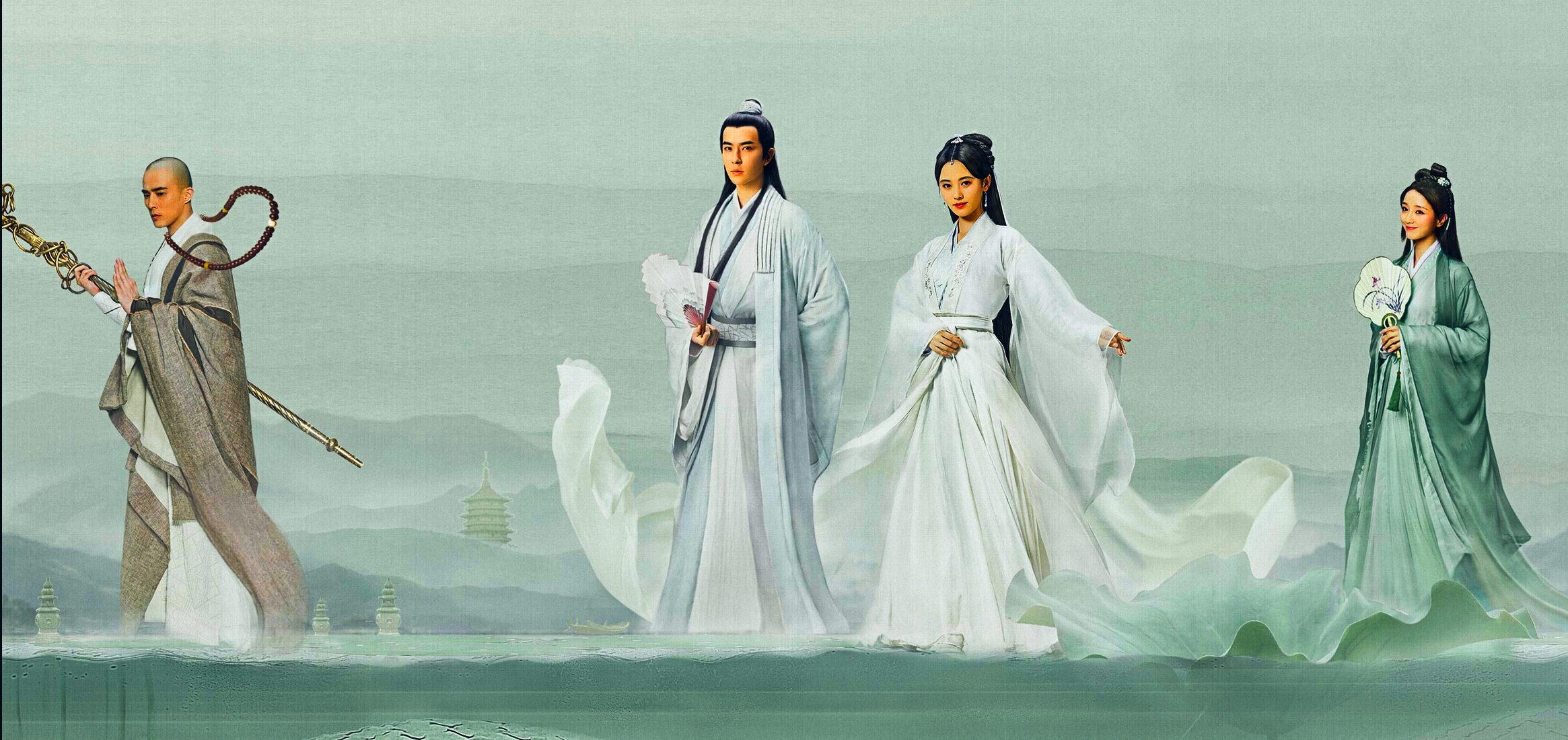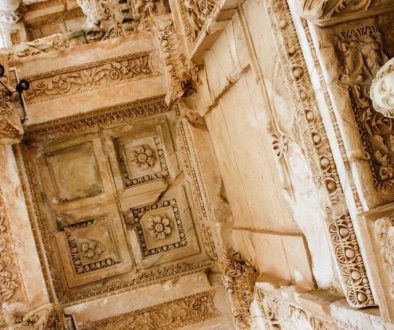Steven S. Drachman on The Legend of White Snake
I love the Legend of White Snake, the TV show from China now streaming on Netflix, a show about a thousands-year-old snake demon who takes the form of a beautiful woman, and who falls in love with a human man; the new TV version is outlandish, tragic, ridiculous and beautiful, filled with painterly, self-consciously fake tableaux that remind me of images updated from old silent films. The TV show has another plus, in that it is set in the Southern Song Dynasty, a really fraught and inventive time, when the Chinese leadership was sheltered at the bottom of the country, awaiting invasion by a Mongolian army that had already conquered the north; parts of my third novel, Watt O’Hugh and the Innocent Dead are set during that period.
When my kids were young, I read to them from a White Snake picture book, which, like the TV show, was based on the classic Chinese opera. (I probably skipped some parts when I read it out-loud.) I am such a fan that when I was writing my novel, Watt O’Hugh Underground, and I needed a surreptitious meeting place in 1870s San Francisco Chinatown, I chose a Chinese theater rehearsing White Snake.
In this scene, a Chinese poet has arrived in America, pursuing a sketchy mission on behalf of the Empress; he awakens in a hovel where he has taken shelter, and makes his way to his shadowy meeting at a local Chinese theater. So here it is.
When Master Yu awoke the next day, he was still submerged in absolute pitch darkness, and he thought that perhaps he had died.
Then he remembered everything.
He crawled to the door at the end of the room, pulled it open, and he wandered up to the street. It was already late afternoon, and the Chinese city was alive.
He left Duncombe alley, and the breathing Chinatown of daytime passed him in a blur, the stalls selling fish so fresh they still flapped about, the fifteen cent barbershops, the herbalist on the corner, the awning that shielded the Tuck Hing meat market from the last wink of the California sun, the tea and opium piled in the wide windows of the bazaar across the avenue, the workers pouring out of the cigar factory, crowding about him and parting like the sea, murmuring in that common tongue that he disliked so much and still would not admit that he understood.
He found the theater on Jackson Street, a great crumbling old-man of a building in this newborn babe of a city, with rotting columns and peeling paint and mythic implications of past greatness.
Master Yu peered into the empty ticket office. He rapped a few times on the glass. At length, a wiry, wrinkled gentleman with an impossible, ropy mustache appeared at the window.
Master Yu introduced himself.
“Is there a package for me? I believe that you may be holding a package for me, which was sent from the Golden Sky Hotel in Denver.”
He didn’t explain how he came to possess that belief.
The little man turned all shades of discomfort, and he quickly vanished. Yu Dai-Yung could hear a hushed conversation in the next room. Finally, an older woman came to the window. She wore a yellow silk robe.
She smiled icily.
“Please come in through the side door, Master Yu,” she said. “I am Mrs. Hong.”
Inside, she walked him through a dusty, winding hallway, up a flight of creaking wooden steps and into another corridor that opened onto a narrow empty balcony, which overlooked the theater’s wooden stage. A Chinese banner draped across the top of the theater proclaimed, “When Ideals Are in Harmony, the Sounds that Ensue Will be Elegant.” The stage was bare and rough. Three musicians – a lute player, a zither player, and a two-stringed fiddle player – sat on wooden chairs at the rear of the stage before a backdrop depicting West Lake, near the city of Hangzhou, and the hilly green countryside beyond. Blooming peach and plum blossoms dotted the painted landscape, pleasure boats drifted lazily and motionlessly through the painted blue water, and the Thunder Peak Pagoda tickled the clouds. Ah, China, he sighed longingly. To smell those peach blossoms! (When had he last smelt those peach blossoms? Ever? No mind; their utter absence in this world of concrete made them precious beyond words, beyond rubies.)
At the front of the theater, a few actors stood about, waiting to rehearse. A woman dressed in a long white gown with long white sleeves began to sing. He knew this story, and he smiled with recognition, then frowned with sadness. A terrible snake goddess – a creature as old as the world itself – transformed herself into a beautiful young woman, who, as the opera began, was in the process of falling hopelessly in love with a mortal man on the shore of the Lake. Ecstasy bloomed; joy resulted; a wedding duet wafted through the empty theater. When her human lover died, terribly, painfully and with a beautiful, tuneful death-cry, the bereft snake goddess rose like a golden Phoenix to heaven and descended like a fiery meteor to Earth, with the antidote in her heart. Before the opera’s villain, an angry monk, had the opportunity to imprison her beneath the Pagoda for all eternity, Master Yu felt a tap on his back, and he breathed a sigh of relief. He could live without tragedy for this evening. Better to watch the reunited lovers embrace and to leave the theater, pretending that the opera was over.
He turned.
Li-Ling beckoned him from the shadows.
He smiled, and she didn’t smile back.
He followed her out of the theater, into the darkening and emptying moonlit city streets.
^^^
Steven S. Drachman is the author of the Watt O’Hugh historical fantasy trilogy. The final book, Watt O’Hugh and the Innocent Dead, is available in trade paperback from your favorite local independent bookstore, from Amazon and Barnes and Noble, and on Kindle.



